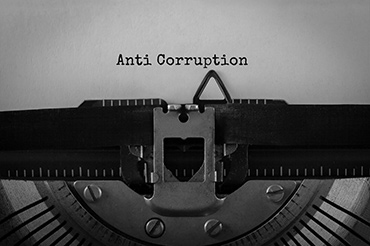What is ICAC?
The Independent Commission Against Corruption (ICAC) is an independent commission which aims to reduce corrupt activities in order to ensure that public confidence is maintained and protected. ICAC also monitors the conduct of NSW public officials in the Public Sector.
ICAC was established in 1988 and is governed by the Independent Commission Against Corruption Act 1988.
What is the structure of ICAC?
ICAC conducts independent operations and investigations. This means that politicians (including political parties), government officials, state corporations and even government ministers, do not mandate the  investigations conducted by ICAC.
investigations conducted by ICAC.
The ICAC is divided into 4 divisions: Investigation, Corporate Services, Corruption, and a Legal Division.
Depending on what matters are bought before ICAC, ICAC may either:
• Ask the agency to investigate the matter and report back to ICAC.
• Refer the matter to another agency if ICAC does not have the authority to deal with it.
• Make assessment enquiries to decide whether to take no action or further action.
• Give corruption prevention advice to an agency concerned.
• Officially commence an investigation.
If ICAC finds that an official has acted corruptly, the charges will be referred to the Director of Public Prosecutions (DPP) for criminal charges to be laid under the criminal justice system.
What powers does ICAC have to compel witnesses to give evidence?
The commission has the strong-arm powers similar to at royal commission and can compel witnesses to testify in both Public and Private hearings. There is no right to silence for witnesses called to the Commission and failure to testify (along with misleading the commission) can lead to five-year jail terms.
There are only limited controls on admissible evidence, which may be obtained by compulsion and coercion or other means that would make it inadmissible in a court of law.
What are some examples of recent ICAC investigations?
In 2015, ICAC investigated allegations concerning public official Jason Meeth, employed at the University of Sydney as a Head of Projects ICT. It is alleged that he dishonestly contracted work to ICT contractors through an unaccredited IT consulting service, Canberra Solutions Pty Ltd. The University’s directions for such a recruitment required contractors to be recruited under a NSW Government-accredited C100 company.
ICAC also investigated allegations in 2016, concerning the Chief Financial Officer, Gary Goodman, of Botany Bay. It was alleged that he, along with other employees, exercised their official functions to financially obtain benefits for himself by using council resources as well as causing payments greater than $4.2 million to be made by the council to themselves and other entities. The investigation was in 2015 / 2016 and proceeded to public ICAC hearings.
How can Nyman Gibson Miralis assist you?
If you receive a summons to give evidence at a compulsory examination or public inquiry, it is important you seek legal advice. Answering questions and producing documents which are required from you might incriminate you.
It is a criminal offence to fail to attend the hearing or to refuse to answer relevant questions. We strongly recommend that you obtain legal representation before any ICAC hearing.
There are rights to object to certain questions. Nyman Gibson Miralis Criminal Defence lawyers can represent you at the hearing and ensure protection of your rights. We have extensive experience having appeared in a number of inquiries. With the help of one of our experienced Sydney criminal lawyers, we may be able to assist in avoiding criminal charges.

